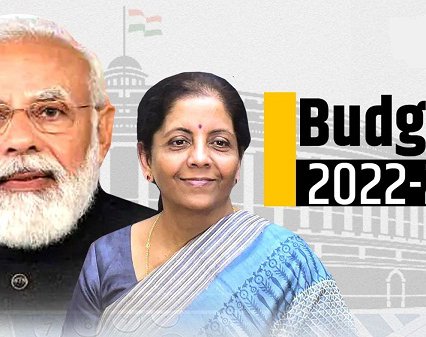The Union Budget would provide impetus to the domestic textile industry, according to FW, because despite increasing import duties for certain fabrics that can be produced domestically, exempting customs duties on the import of embellishments, finishes, fasteners, buttons, zippers, upholstery material, specific leather and packaging boxes needed by exporters of handicrafts, textiles, leather, leather clothing and footwear.
India's Finance Minister, Nirmala Sitharaman, presented to Parliament the 2022-23 EU budget, which could have a positive impact on the fashion, textile and clothing, leather and footwear or other leather products sectors.
Budget allocation to attract fresh investments in textiles
A capital allocation of Rs 133.83 (1,338,300,000) crore has made for the Textile Cluster Development Scheme. The budget also increases allocation for research and capacity building in textiles by 73.4 per cent to about Rs 478.83 crore (4,788,300,000) in 2022-23, as compared to revised budget allocation of Rs 276.10 crore (2,761,000,000) in 2021-22. The recently announced Production Linked Incentive (PLI) scheme and PM Mega Integrated Textile Region and Apparel (PM MITRA) scheme were allocated Rs 15 crore (150 milions) each for 2022-23. This will boost fresh investment of Rs19,000 crore (190 billion) in the textiles sector over the next five years, besides creating over 7.5 lakh (750,000) additional job opportunities in this sector, believes the FM.
Another Rs 105 (1.05 billion) crore has been allocated for 2022-23 towards Raw Material Supply Scheme. This will not only generate employment but also boost production in the medium to long term through multiplier-effects, Sitaramanan highlighted.
Budget to wipe out CCI’s losses
The budget has been praised by many leaders across the textile and apparel industry. Ravi Sam, Chairman, Southern India Mills Association (SIMA), opines the budget will help India become a superpower in coming decades. Addressing structural issues on taxation and raw materials enhances the overall competitiveness of textile industry, he feels. Sam also approves the allocation of Rs 17,683 (176.83 million) crore to the Cotton Corporation of India (CCI) for procuring cotton for the years 2021-22 and 2022-23 under the Minimum Support Price. He opines, this will wipe out the corporation’s losses incurred for procurement of over two crore bales of cotton during the last two years that had greatly benefited the farmers to sustain the area under cotton. However, he urges the government to exempt ELS cotton and sustainable cotton from 11 per cent import duty as such specialty cotton is not produced in the country. He also urged the Government to allow duty free import of cotton to the actual users with some quantitative restrictions for the off season, as the country is likely to face shortage of cotton to the tune of 40 lakhs bales (4 million).
Tax exemption to enhance fabrics market
MA Ramaswamy, Chairman, PDEXCIL, appreciates the exemption offered on certain fabrics, embellishments and accessories. This will help the fabric and the made-up sector. The PLI scheme for textiles will also help boost employment, he adds. Appreciating the initiating of ‘Ease of Doing Business 2.0’ with industry stakeholders, Prabhu Damodaran, Convenor, Indian Texprenuers Federation says, the move will help the federation improve its ranking. The extension of tax incentive period for new manufacturing units by a year will motivate industries regarding new Capex, he adds. He also hailed the government’s move to prioritize the use of technology for cotton crop assessment. This will help the industry get good market place intelligence.
The Clothing Manufacturers Association of India (CMAI) too hails the removal of import duty on accessories, embellishments, trimmings, buttons, etc, a long-time demand of the industry. CMAI believes this would particularly help apparel exports to be more competitive. The Associations has welcomed the budget as a growth-oriented with several measures that encourages capital expenditure and other growth-related activities. Extension of the ECLG Scheme for MSMEs by a year will help the apparel industry, since many units are still struggling to overcome the adverse effects of the pandemic. However, it is unfortunate that the enhanced outlay for the scheme is restricted only for the hospitality industry – as the retail industry was as badly impacted in the pandemic. Even under the current wave, retail continues to be impacted with lockdowns, partial closures, limited working hours, etc, CMAI said in a press release.

